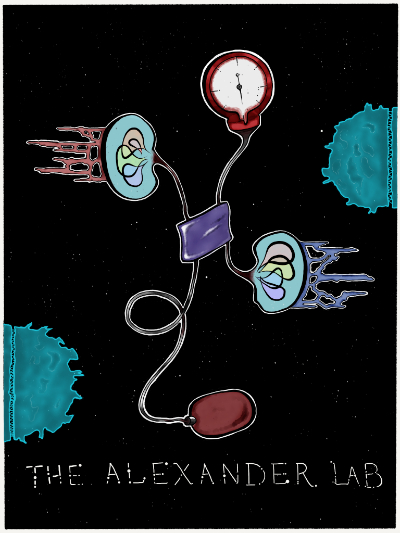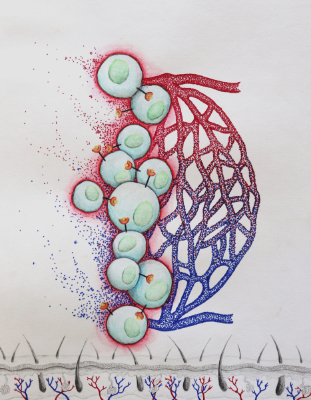The Alexander laboratory performs basic/translational research to understand the role of immune activation in the pathogenesis of hypertension. We have a particular focus on the role of regulatory T cell transitions in hypertension and the intersection of hypertension and autoimmune disease.
Our ultimate goal is to therapeutically target specific immune cells as novel therapies.
Ongoing projects include determining
Role of novel regulatory T cell subsets in the pathogenesis of hypertension and skin microvascular dysfunction
Mechanisms by which the autoimmune disease psoriasis enhances hypertension severity and related end-organ dysfunction
Causal roles of genes with robust genetic linkage to human hypertension using reverse translational approaches
Immune checkpoints in the pathogenesis of hypertension
We perform cutting-edge basic and translational research integrating vascular biology and immunology using a variety of approaches including: molecular biology, physiology, highly dimensional single cell analysis with computational approaches, and human genetics.
Our laboratory is also integrated with the translational research infrastructure in the divisions of Cardiovascular Medicine and Genetic Medicine and Clinical Pharmacology to enable novel studies on human tissues and immune cells.

